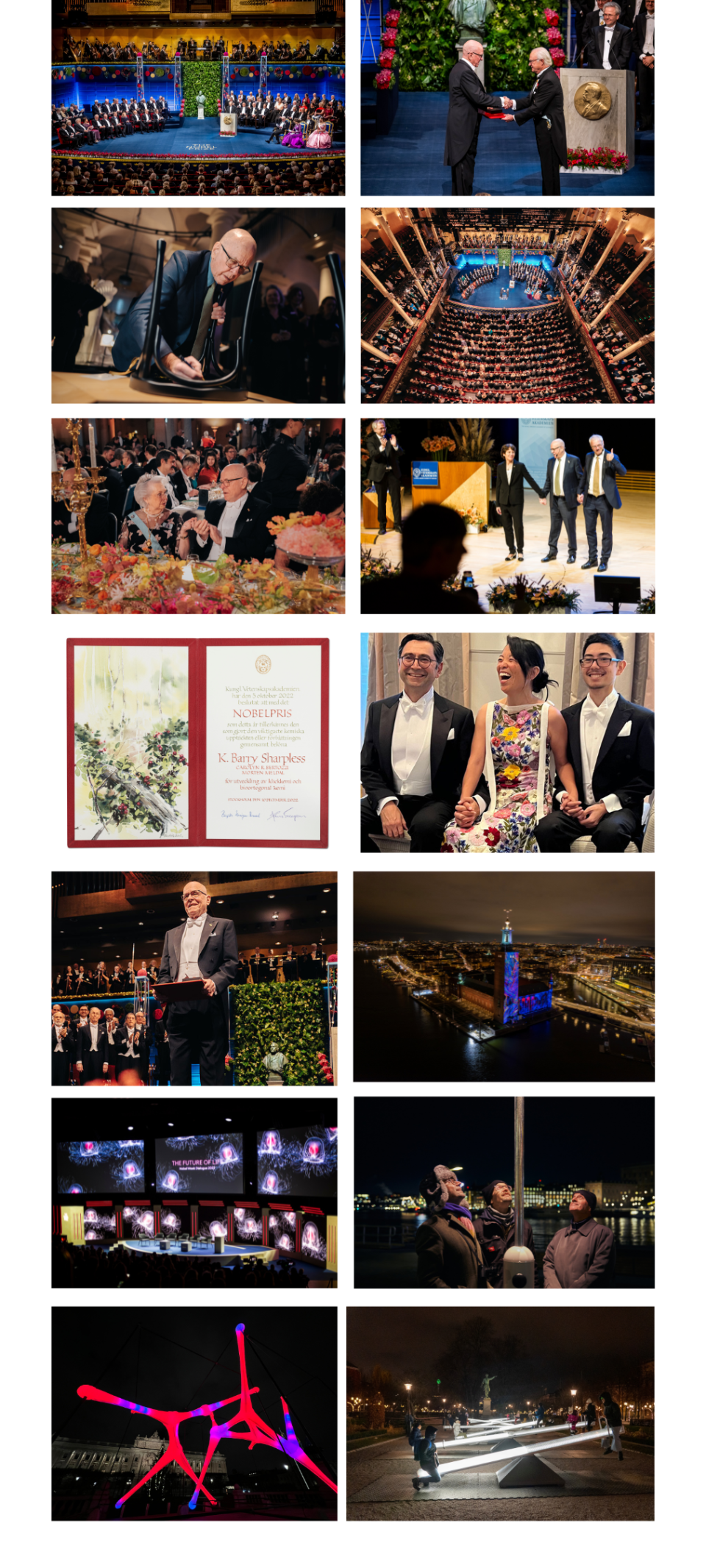
Last week, Nobel laureates past and present descended upon Stockholm for the 2022 Nobel Prize ceremony. This included our own Scripps Research scientists K. Barry Sharpless, PhD, the W.M. Keck Professor of Chemistry, and Ardem Patapoutian, PhD, the Presidential Endowed Chair in Neurobiology.
Sharpless, awarded the Nobel Prize in Chemistry this year, gave his lecture on “click chemistry”—an ingenious method for building molecules. Sharpless previously shared the 2001 Nobel Prize in Chemistry for his work on chirally catalyzed oxidation reactions, making him one of only five scientists to ever receive two Nobel Prizes. This year, he shared the prize with Carolyn R. Bertozzi, PhD, of Stanford University and Morten Meldal, PhD, of the University of Copenhagen.
“It’s a profound thing to realize what you can do if you don’t try to do any old way of making molecules,” Sharpless said at this year’s ceremony.
Since his initial discoveries roughly 20 years ago, click chemistry methods have led to countless advancements across many aspects of science and society—not only new drug discovery methods, but also novel medicines, scientific tools, bioimaging approaches and contrast media, to name a few.
Patapoutian also attended the ceremony this year, after being awarded the Nobel Prize in Physiology or Medicine in 2021 for his groundbreaking research in how the body senses touch and other mechanical stimuli.
“Most cells in our bodies communicate through chemicals, but cells also respond to pressure, and how this is accomplished has remained unknown,” Patapoutian described in his Nobel Prize lecture in 2021.
Patapoutian and colleagues discovered that two ion channels, known as PIEZO1 and PIEZO2, are necessary for cells to respond to these mechanical stimuli. They also uncovered how these channels regulate other processes in the body like blood pressure, respiration and bladder control. Today, he and his lab are continuing to uncover complex discoveries about how we perceive pressure and touch.
To learn more about their novel research, watch Sharpless’ and Patapoutian’s respective Nobel Prize lectures.